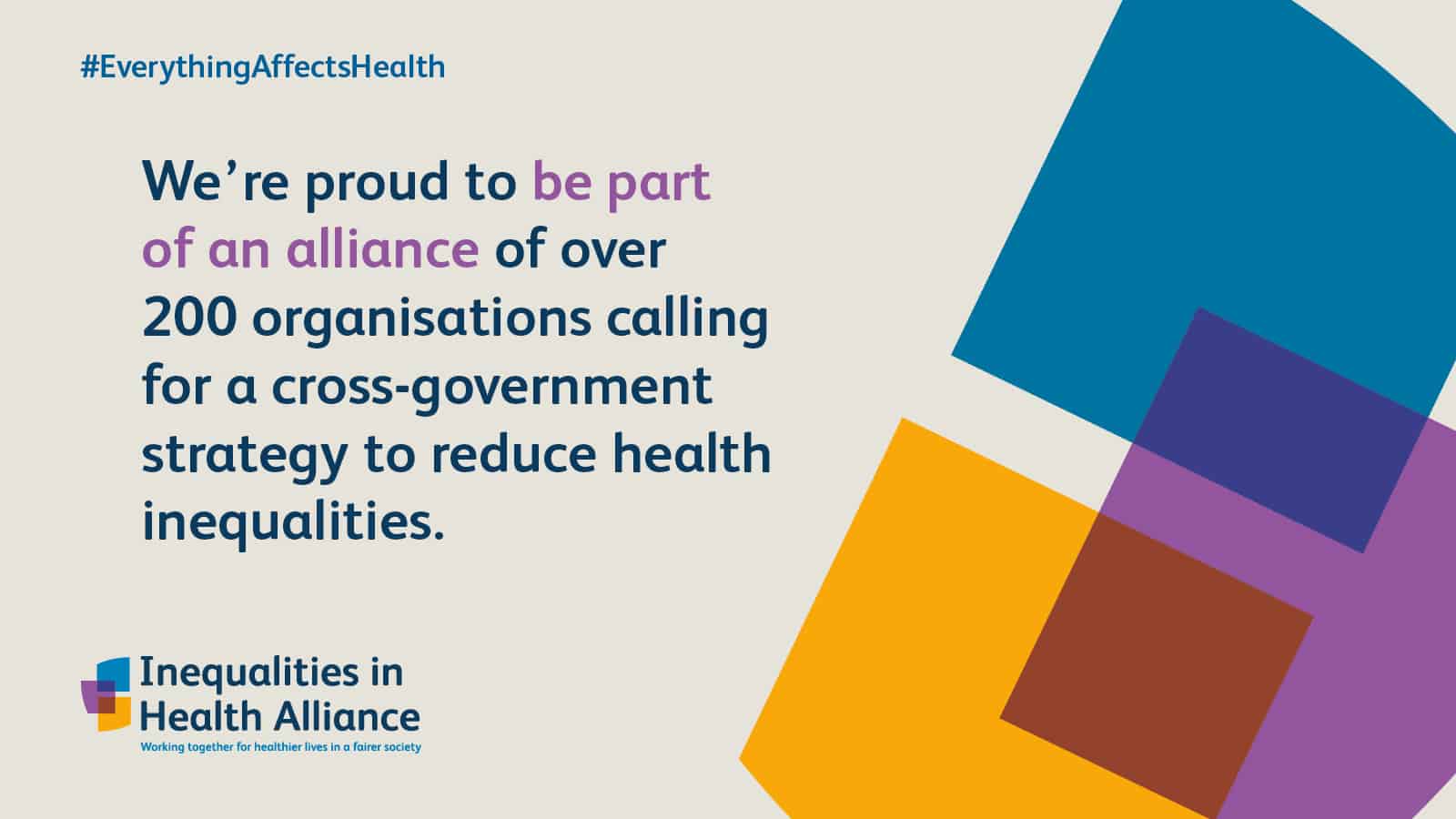Over 155 organisations urge Health and Social Care Secretary to publish health disparities white paper
Over 155 members of the Inequalities in Health Alliance (IHA) have signed a letter to Dr Thérèse Coffey ahead of the Conservative party conference this weekend urging the secretary of state for health and social care to maintain the commitment to publishing a Health Disparities White Paper (HDWP) by the end of this year.
Convened by the Royal College of Physicians, the IHA (a coalition of representing patients, communities, doctors, nurses, public health and social care professionals, dentists, pharmacists, academics, local authorities and other) says the HDWP is a vital opportunity for government to set out how every Department will work together to tackle the factors that cause ill health in the first place such as poor housing, lack of educational opportunity, child poverty, communities and place, employment, racism and discrimination, transport and air pollution. Despite the commitment to a HDWP in the Levelling Up white paper earlier this year, it was not mentioned in the ‘Our Plan for Patients’ document published by the Department of Health and Social Care (DHSC) last week.
In its letter to Dr Coffey, the IHA warns that without a clear cross-government focus on the issues that cause ill health, “the DHSC and NHS will be left in the ultimately unsustainable position of trying to treat illness created by the environments people live in”. It is estimated that health inequalities were estimated to cost the UK £31bn to £33bn before COVID-19. The IHA letter argues that the HDWP must commit to clear cross-government action, including an explicit cross-government strategy, which in the long-term would reduce demand on the NHS and support the economy by reducing avoidable illness and increasing productivity.
The cost-of-living crisis has reinforced the need for an explicit cross-government approach to improving health. Polling published by the Royal College of Physicians in May 2022 found that 55% of people felt their health had been negatively affected by the rising cost of living, with the increasing costs of heating (84%), food (78%) and transport (46%) reported as the top three factors.
The IHA makes clear that the secretary of state must restate the government’s commitment to health inequalities, warning that “focusing on individual behaviours and access to services alone will not be enough to close the almost 20-year gap in healthy life expectancy that exists in England between those from the least and most deprived communities.” Dr Sarah Clarke, president of the Royal College of Physicians said: “If we’re ever to reduce pressure on the NHS and lessen the demand for services, we need to tackle the root causes of ill health.
This requires a specific cross-government strategy to reduce health inequalities – one that looks at every policy lever across government to tackle the factors that make people ill in the first place.
“Health inequalities were a notable absence from the secretary of state’s first speech to parliament. Good health is central to economic growth. We need a clear commitment to prioritise health inequalities and deliver the health disparities white paper as planned.”


